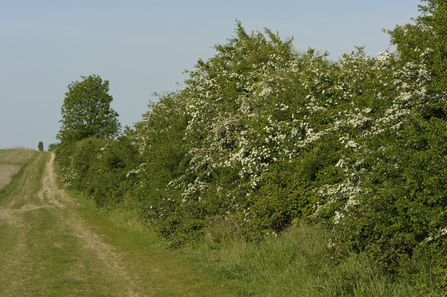
Hawthorn hedge by Chris Gomersall
Woodlands make up some of Suffolk’s most beautiful landscapes and provide a complex habitat for a wide range of species, offering food and shelter at ground level or among low growing plants, within shrubs and bushes and amongst the branches of the tallest trees.
Over the last 40 years, due to the intensification of farming and development pressures, almost half of the UK’s ancient woodland has been lost. This has made the managing and creation of woodland important and given extra significance to the creation and maintenance of hedgerows; as well as providing refuge, these make up a vital wildlife corridor to fragmented habitat.
We hope the resources below will help you maintain existing woodland and hedgerows as well as planting and allowing the natural regeneration of new sites.
Woodland creation
|
Woodland creation by natural regeneration Natural regeneration is the best way of creating a new woodland for wildlife and expanding ancient semi natural woodlands. |
|
It is possible to plant trees and shrubs to create an area which looks, smells and feels like a real woodland within 20 to 30 years. |
Woodland management
|
In order to restore old woodlands to their former glory, it is often necessary to reintroduce the traditional ways of looking after them. |
|
Suffolk has a wealth of veteran trees that are a unique and vital habitat for wildlife. |
Hedgerows
|
A hedge containing the right mix of plants and located in the right place can create a vital refuge for wildlife. |
|
Hedgerows are one of the most important habitats for wildlife and with correct management will support a good variety of birds, small mammals, insects and plants. |
Suffolk species
|
Dormice are thriving in parts of Suffolk but are still in need of a helping hand. See how you can help this rare mammal with careful management and by recording sightings. Watch a film about our dormouse work. |
